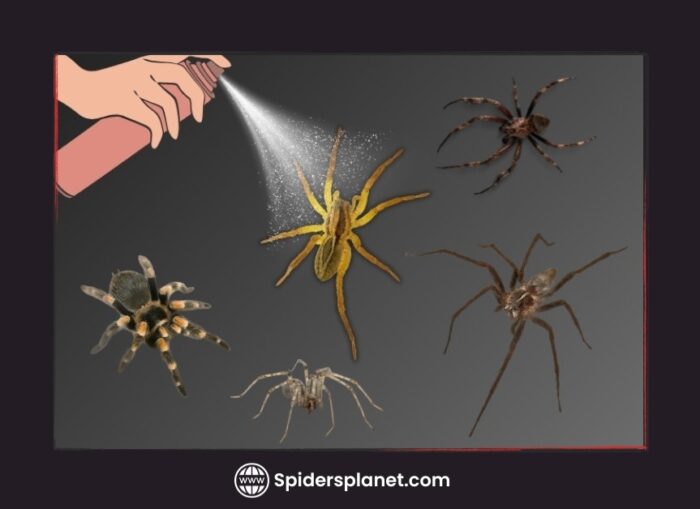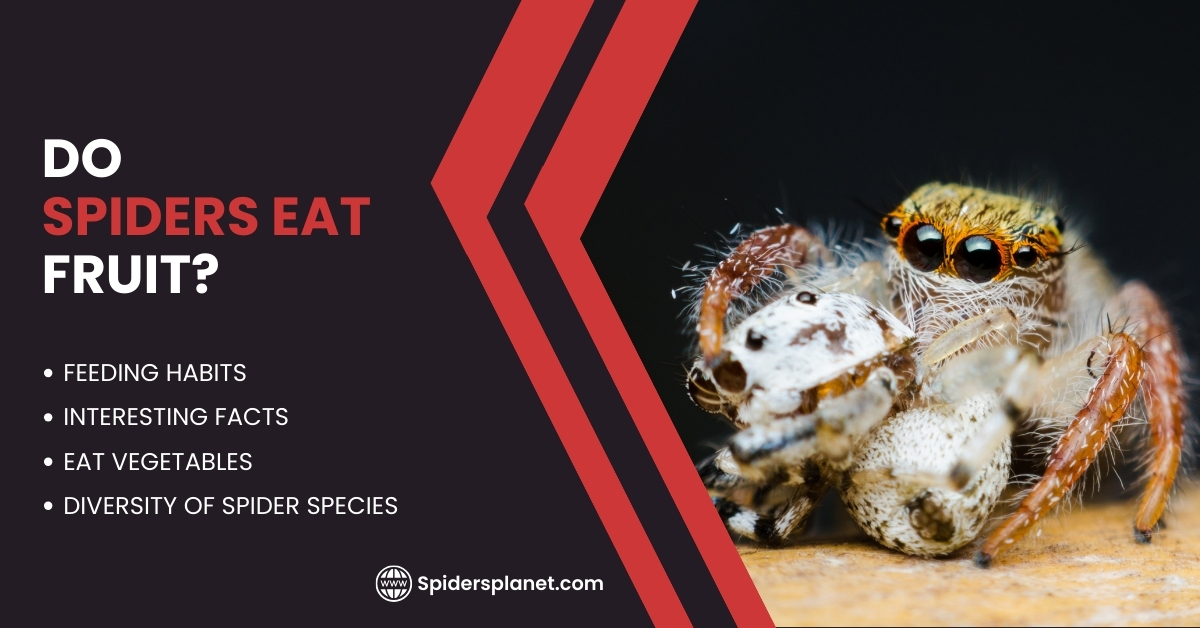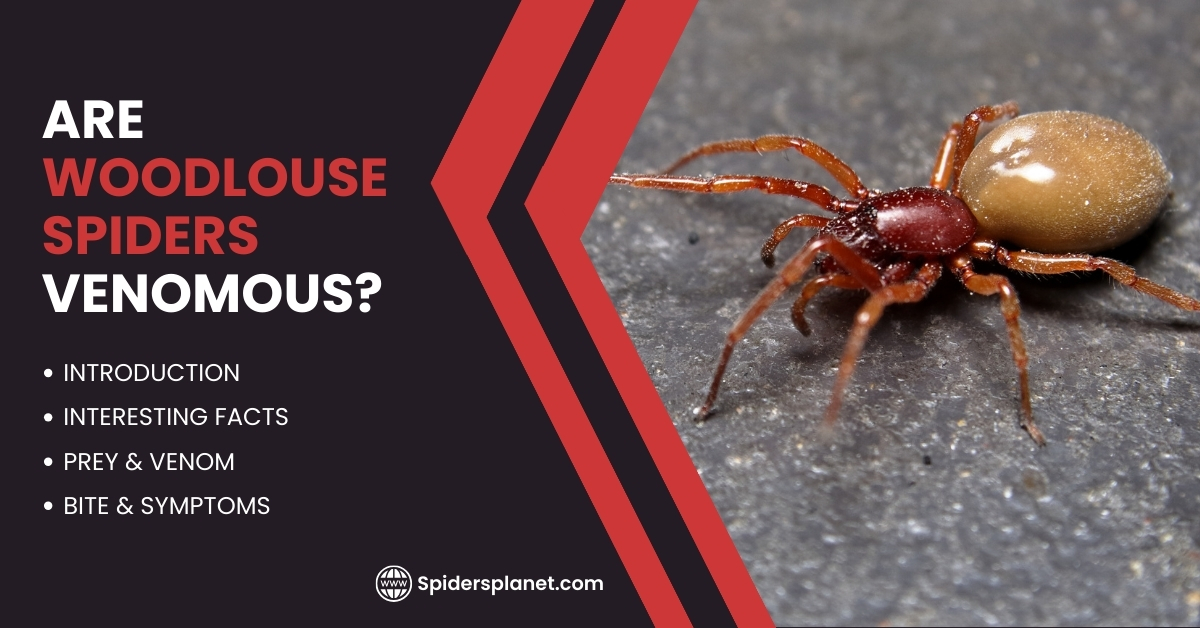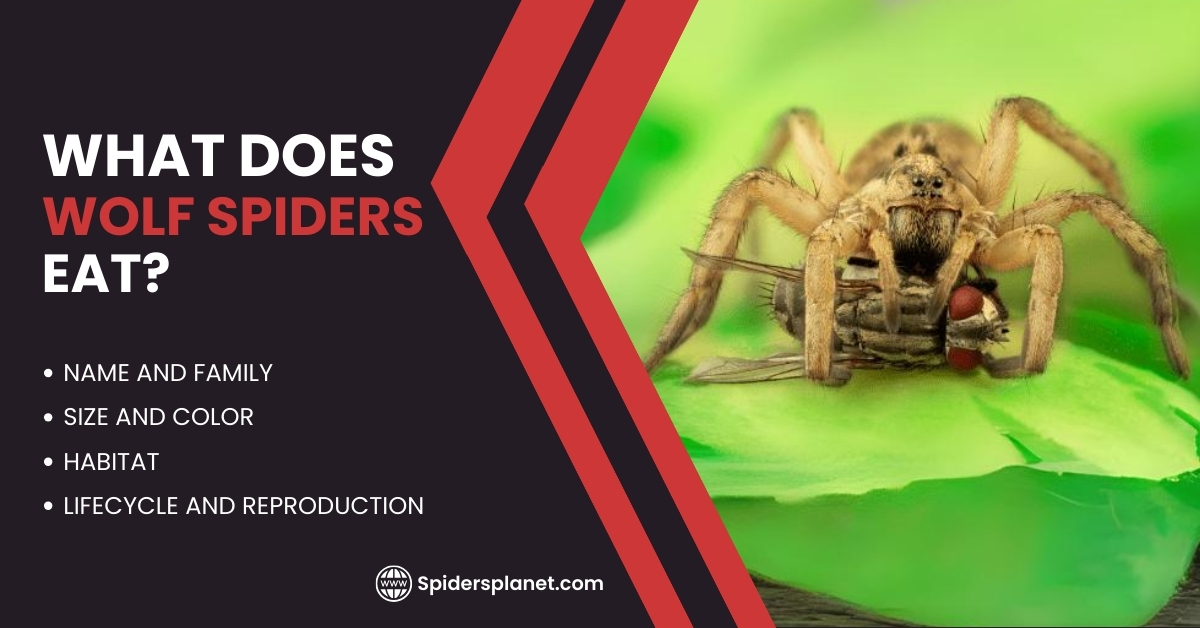Have you ever found a skinny eight-legged spider in your corner and grabbed the first thing nearby, like your trusty hairspray?
You are not the only one! Many people wonder, does hairspray kill spiders? Or really works against spiders.
But before you spray chemicals in your living room, let’s explore the truth about whether hairspray is effective against these creepy crawlies.
The use of hairspray can effectively eliminate spiders through different mechanisms.
It has proven to be one of the most efficient methods for dealing with these eight-legged creatures. People often observe the impact of hairspray on spiders and intentionally employ it to eliminate them.
Results can differ depending on the spider species and the type of hairspray employed.
To learn more about how hairspray eliminates spiders and discover alternative household hacks for pest control by continuing to read!
Does Hairspray Kill Spiders?
If you apply hairspray to a spider with the intention of killing it, the chemicals in the spray will react with the spider’s body, leading to its death within a few minutes.
The effectiveness of the chemicals is quicker on smaller spiders, while larger ones may take longer to succumb.
Chemicals present in hairspray can be detrimental or harmful to spiders. Opting for a natural spider repellent is a more effective way to kill them without resorting to using hairspray everywhere.
Furthermore, it is worth noting that using hairspray may leave a sticky residue on the floor where it was applied to cover the spider.
How Does Hairspray Kill or Affect Spiders?
Hairspray Immobilize Spiders:
The effectiveness of hairspray in immobilizing spiders is primarily attributed to its sticky residue.
When hairspray is sprayed on a spider, the mist and propellant rapidly evaporate, creating a sticky layer that adheres to the spider’s legs, hairs, and body.
This sticky coating acts like a glue, limiting the spider’s ability to move freely. It restrains spiders, limiting their ability to crawl, climb, or jump.
The result is that the spider becomes trapped and finds it difficult to navigate due to the adhesive nature of the hairspray residue.
Hairspray Suffocates Spiders:
The respiratory interference caused by certain hairsprays, particularly those with alcohol or specific polymers, can impact a spider’s breathing.
The chemicals present in the hairspray have the potential to clog or irritate the small book lungs found on the spider’s abdomen.
As a result, the spider faces difficulty in taking in oxygen, leading to symptoms like lethargy, disorientation, and, ultimately, suffocation.
This respiratory disruption contributes to the overall effectiveness of hairspray in immobilizing and incapacitating spiders.
Hairspray-Induced Stress and Harm in Spiders
Using hairspray on spiders can have detrimental effects on their well-being.
The chemicals in hairspray, known for their potential to irritate, can distress the delicate skin and tissues of the spider. Furthermore, if the spider ingests hairspray during self-grooming, it may suffer internal irritation and damage to its organs.
While the immediate impact may not be fatal, the combined effects of immobilization, oxygen deprivation, and stress can gradually lead to the spider’s death.
Additionally, a partially immobilized spider becomes more susceptible to predation by other animals, as its ability to defend itself or escape is compromised.
Related Posts:
How to Use Hairspray to Kill a Spider?
If you want to proceed with your hairspray to kill a spider, follow these steps:
Locate the Spider:
Spiders play a vital role in ecosystem balance by controlling insect populations. Typically, they prefer to stay out of sight and are often more afraid of humans than we are of them.
If a spider is not posing an immediate threat, it is advisable to coexist peacefully with it or carefully put it in a jar and shift it somewhere outside your place.
However, if you are determined to use hairspray to remove the spider, choose one with a potent adhesive formula for more effective immobilization. Identify the spider’s location before applying the hairspray.
Maintain Distance:
Stand at a safe distance from the spider to prevent direct contact.
Direct Application:
Aim the nozzle of the hairspray directly at the spider, covering it thoroughly. Allow some time for the hairspray to take effect without disturbing the spider.
Clean-Up:
Be prepared to clean any sticky residue left on surfaces.
Precautions to use Hairspray to Kill Spiders:
Ensure good ventilation in the area. Avoid open flames, heat sources, or electrical appliances to prevent the risk of fires.
How Much Hairspray Do You Need to Use to Kill Spiders?
Spraying a spider directly with hairspray for 3-5 seconds is typically sufficient to eliminate it. The hairspray coats the spider, obstructing its breathing and rendering it immobile.
Afterward, you can gently remove the spider using a paper towel or a dustpan and dispose of it.
Larger spiders may require more hairspray to ensure effectiveness, especially considering their tendency to flee upon encountering humans, making it challenging to apply enough spray.
Hairspray proves most effective against smaller spiders, where a brief application is generally adequate for successful elimination.
Does Hairspray Kill Spider Eggs?
If you apply hairspray on spider eggs, coating spider eggs thoroughly with hairspray creates a barrier that blocks the emergence of baby spiders and can be effective in preventing them from hatching.
However, larger egg sacs may still rupture, allowing the baby spiders to emerge, and even smaller spiders can sometimes break through the hairspray coating.
To prevent the hatching of baby spiders in your home, take measures to ensure that it does not occur.
It’s advisable to remove the egg sac carefully; using a broom or mop for egg sacs in elevated locations can be a practical and effective option.
How Fast Does Hairspray Kill Spiders?
Hairspray’s speed in killing spiders varies based on factors like spray type, spider size, and the amount used.
Generally, it is not an instant method, taking several minutes or longer for the chemicals to affect the spider. Larger or faster spiders may be more resilient.
However, the application of the hairspray will result in the immobilization of the spider, and you can easily remove the spider from your home.
What Natural or Household Spray Kills Spiders?
Numerous household sprays can effectively manage spiders, offering various options:
Insecticides: Seek out insecticide sprays specifically designed to target spiders, often containing chemicals like pyrethroids effective against various insects.
Peppermint Oil Spray: Create a natural deterrent by mixing water with peppermint essential oil and applying the solution in spider-prone areas, as spiders dislike the scent of peppermint.
Citrus-Based Sprays: Exploit spiders’ aversion to citrus scents by using a citrus-based spray or a water and citrus essential oil solution to repel them.
Vinegar Solution: Act as a natural spider repellent by spraying a mixture of white vinegar and water in areas where spiders are likely to be present.
It is crucial to acknowledge that while these sprays can assist in deterring or eliminating spiders, they may not offer complete effectiveness.
Adhering to safety guidelines is essential, and addressing the root cause of spider presence, such as sealing entry points and maintaining cleanliness, is advisable.
For persistent spider issues, consulting professional pest control services may be a prudent course of action.
Does Hairspray Kill Daddy Long Legs?
While hairspray may affect daddy’s long legs (harvestmen) to some extent, it is not a highly efficient means of controlling or eliminating them.
Daddy’s long legs, as arachnids, possess anatomy and behavior that make them less susceptible to certain substances like hairspray.
Daddy’s long legs stand apart from true spiders due to their inability to produce silk or construct webs, setting them distinctly apart from the silk-spinning behavior exhibited by true spiders.
Typically found in damp areas, they are generally harmless, lacking venom glands. Suppose you are concerned about Daddy’s long legs.
In that case, it is advisable to explore alternative methods for their management, such as physically removing them, creating less conducive conditions, or seeking professional pest control advice if necessary.

How Does Fly or Bug Spray Kill Spiders?
Fly sprays, containing nerve-disrupting ingredients like pyrethroids or pyrethrins, quickly immobilize and kill spiders.
When applied directly, these substances are absorbed through the spider’s exoskeleton, disrupting its nervous system.
These insecticides, designed for fast action, are effective in quickly eliminating pests, but success depends on factors like the product used and application method.
Adhere to product instructions and safety guidelines for responsible pest control.
Also Read: Does Bleach Kill Spiders? Myth Or Fact?
How to Kill a Spider Without Bug Spray?
Certainly, there are several alternative approaches:
- Use a tissue or paper towel to delicately pick up the spider and move it outside without causing harm.
- Employ a vacuum cleaner to capture the spider gently. Once done, make sure to empty the vacuum bag or canister to dispose of the spider safely.
- Utilize natural repellent, scents like peppermint or citrus, known to repel spiders. You can keep spiders away from certain places by using smelly oils, natural sprays, or essential oils.
- Create a mixture of liquid soap and water in a spray bottle. Apply it directly to the spider to block its breathing openings, leading to suffocation.
- Use a broom or fly swatter to guide the spider onto a dustpan gently, then release it outside.
Conclusion:
In summary, using hairspray to kill spiders is effective but may harm the spiders and leave a sticky residue.
The chemicals in hairspray immobilize spiders by creating a sticky coating on their legs and bodies.
This method can be quick but is not always humane, and natural repellents or specific spider insecticides are recommended for a more targeted approach.
If opting for hairspray, use it cautiously, considering environmental impact and safety. Seeking professional pest control help is advised for persistent spider issues.
FAQs:
Does flea spray kill spiders?
Flea spray is not specifically designed to kill spiders, but some flea sprays may have insecticidal properties that can affect spiders to some extent.
How well flea spray works against spiders depends on the specific type of spray and the kind of spider you’re dealing with.
What can I spray on a spider to kill it instantly?
If you are dealing with a spider and want to eliminate it instantly, a common option is to use an insect spray specifically designed to kill spiders.
Look for insecticides labeled for spiders or general-purpose insecticides that are effective against arachnids. These sprays often contain fast-acting chemicals that can quickly immobilize and kill spiders.
Does hairspray kill flies?
Yes, hairspray can be used to kill flies. When sprayed directly on a fly, the sticky and sometimes toxic nature of hairspray can immobilize and eventually kill the insect.
Will wasp spray kill spiders?
While wasp spray may have some impact on spiders, it is not specifically designed for them.
Using insecticides labeled for spiders or general-purpose insecticides targeted at arachnids is generally recommended for more effective control.
Follow product instructions and consider safety precautions for indoor use. If uncertain or if the spider issue persists, consulting pest control professionals is advisable.




Leave a Reply